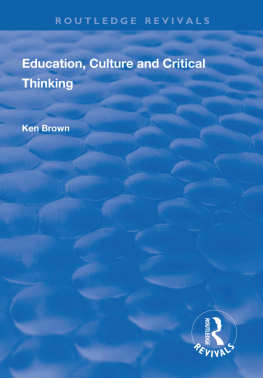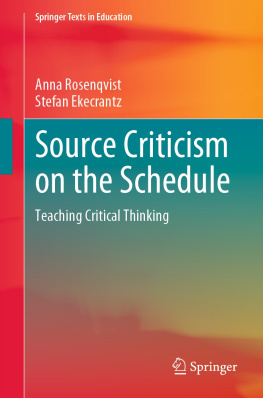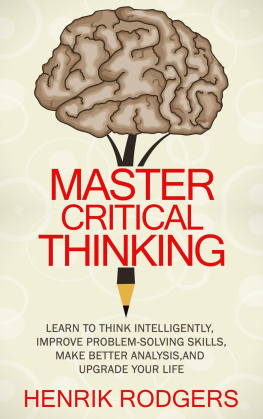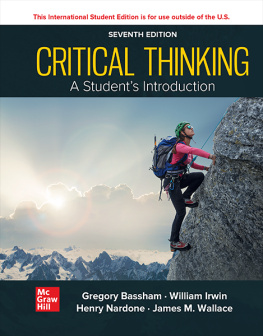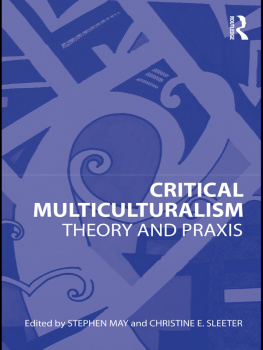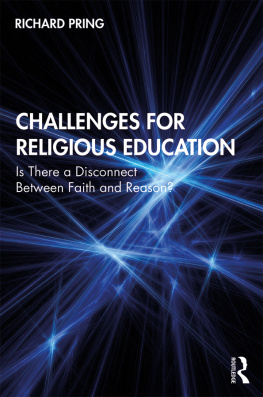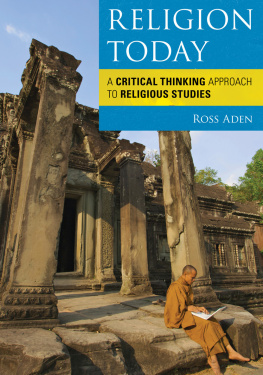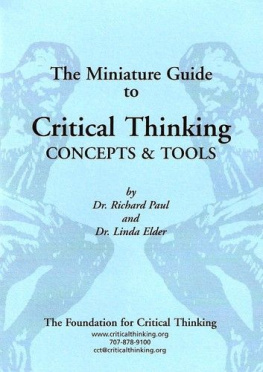Religious Education from a Critical Realist Perspective
This book examines the possibility and necessity of critical thinking in religious education through the lenses of critical realism and the Christian doctrine of sensus fidei (sense of faith). Drawing on Bhaskars original critical realism and data from a survey of more than a thousand teachers in the Philippines, the author argues for a view of critical thinking based on components of disposition and competence. As such, critical thinking becomes the expression of a commitment to judgmental rationality and, in a Christian religious education, is guided by the individuals sensus fidei. A philosophical and theological discussion of the process of coming to know in the religious domain, Religious Education from a Critical Realist Perspective also offers concrete recommendations on how to promote the practice of religious critical thinking in confessional religious education classrooms. As such, it will appeal to scholars of philosophy, theology, and pedagogy with interests in religious education and curriculum development.
Johnny C. Go is Director of the Science and Art of Learning and Teaching (SALT) Institute at Ateneo de Manila University, Philippines, concurrently serving as the Education Secretary for the Jesuit secondary and pre-secondary schools in Asia Pacific. After serving as the President of Xavier School from 2001 to 2013, he completed his doctorates in education in 2016 at the UCL Institute of Education, University of London, and the Singapore National Institute of Education at the Nanyang Technological University. He also teaches education and philosophy at the Ateneo de Manila University and the University of the Philippines.
Routledge Studies in Critical Realism
Critical Realism is a broad movement within philosophy and social science. It is a movement that began in British philosophy and sociology following the founding work of Roy Bhaskar, Margaret Archer and others. Critical Realism emerged from the desire to realise an adequate realist philosophy of science, social science, and of critique. Against empiricism, positivism and various idealisms (interpretivism, radical social constructionism), Critical Realism argues for the necessity of ontology. The pursuit of ontology is the attempt to understand and say something about the things themselves and not simply about our beliefs, experiences, or our current knowledge and understanding of those things. Critical Realism also argues against the implicit ontology of the empiricists and idealists of events and regularities, reducing reality to thought, language, belief, custom, or experience. Instead Critical Realism advocates a structural realist and causal powers approach to natural and social ontology, with a focus upon social relations and process of social transformation.
Important movements within Critical Realism include the morphogenetic approach developed by Margaret Archer; Critical Realist economics developed by Tony Lawson; as well as dialectical Critical Realism (embracing being, becoming and absence) and the philosophy of metaReality (emphasising priority of the non-dual) developed by Roy Bhaskar.
For over thirty years, Routledge has been closely associated with Critical Realism and, in particular, the work of Roy Bhaskar, publishing well over fifty works in, or informed by, Critical Realism (in series including Critical Realism: Interventions; Ontological Explorations; New Studies in Critical Realism and Education). These have all now been brought together under one series dedicated to Critical Realism.
The Centre for Critical Realism is the advisory editorial board for the series. If you would like to know more about the Centre for Critical Realism, or to submit a book proposal, please visit www.centreforcriticalrealism.com.
The Subject of Human Being
Christopher W. Haley
Religious Education from a Critical Realist Perspective
Sensus Fidei and Critical Thinking
Johnny C. Go
For more information about this series, please visit: www.routledge.com/Routledge-Studies-in-Critical-Realism-Routledge-Critical-Realism/book-series/SE0518
First published 2019
by Routledge
2 Park Square, Milton Park, Abingdon, Oxon OX14 4RN
and by Routledge
52 Vanderbilt Avenue, New York, NY 10017
Routledge is an imprint of the Taylor & Francis Group, an informa business
2019 Johnny C. Go
The right of Johnny C. Go to be identified as author of this work has been asserted by him in accordance with sections 77 and 78 of the Copyright, Designs and Patents Act 1988.
All rights reserved. No part of this book may be reprinted or reproduced or utilised in any form or by any electronic, mechanical, or other means, now known or hereafter invented, including photocopying and recording, or in any information storage or retrieval system, without permission in writing from the publishers.
Trademark notice: Product or corporate names may be trademarks or registered trademarks, and are used only for identification and explanation without intent to infringe.
British Library Cataloguing-in-Publication Data
A catalogue record for this book is available from the British Library
Library of Congress Cataloging-in-Publication Data
Names: Go, Johnny C., author.
Title: Religious education from a critical realist perspective : Sensus fidei and critical thinking / Johnny C. Go.
Description: New York : Routledge, 2019. | Series: Routledge studies in critical realism | Includes bibliographical references and index.
Identifiers: LCCN 2018042242 (print) | LCCN 2018055645 (ebook) | ISBN 9781351016636 (ebk) | ISBN 9781351016629 (web pdf) | ISBN 9781351016612 (epub) | ISBN 9781351016605 (mobi/kindle) | ISBN 9781138498242 (hbk)
Subjects: LCSH: Christian education. | Catholic ChurchEducationPhilippines. | Faith and reason. | Critical thinking. | Sensus fidelium.
Classification: LCC BX926.3 (ebook) | LCC BX926.3 .G6 2019 (print) | DDC 268/.8201dc23
LC record available at https://lccn.loc.gov/2018042242
ISBN: 978-1-138-49824-2 (hbk)
ISBN: 978-1-351-01663-6 (ebk)
Typeset in Times New Roman
by Apex CoVantage, LLC
Is critical thinking compatible with religious education particularly, in confessional Catholic religious education as practiced in the Philippines? If so, in what way can it be taught to students and its practice promoted in the classroom? Adopting an epistemological approach to critical thinking, a survey was conducted among 1,068 teachers in a network of fifteen Catholic schools in the Philippines, which identified a significant percentage of teachers especially religious educators as exhibiting an epistemology considered detrimental to critical thinking. Drawing from critical realism and the Christian doctrine of the believers sense of the faith (sensus fidei), I propose two conceptions of critical thinking that correspond to its disposition and competence components: (a) critical thinking as the expression of a commitment to judgmental rationality, which serves as the basis for ones motivation for critical thinking, and (b) critical thinking as the exercise of


